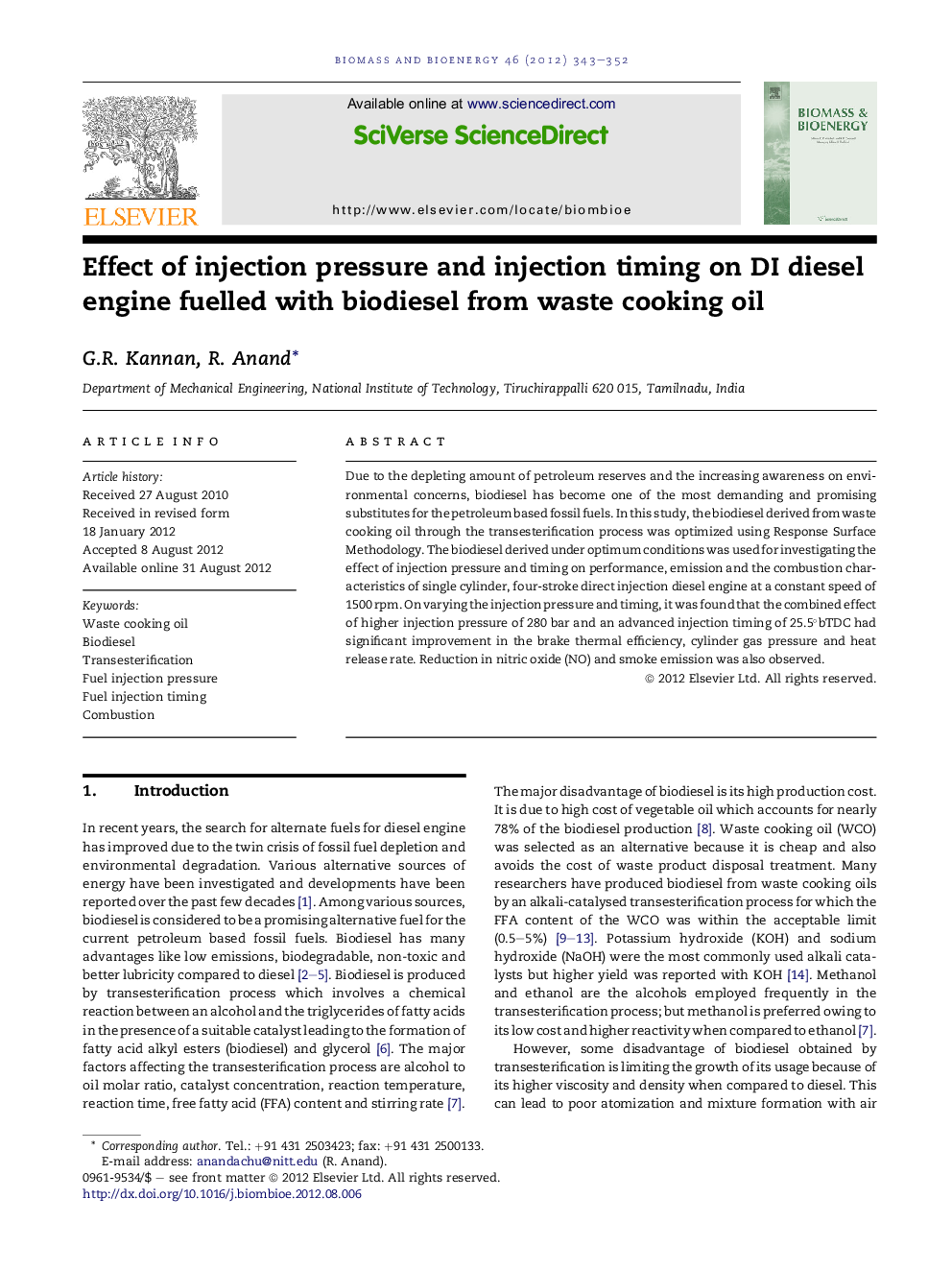| Article ID | Journal | Published Year | Pages | File Type |
|---|---|---|---|---|
| 677168 | Biomass and Bioenergy | 2012 | 10 Pages |
Due to the depleting amount of petroleum reserves and the increasing awareness on environmental concerns, biodiesel has become one of the most demanding and promising substitutes for the petroleum based fossil fuels. In this study, the biodiesel derived from waste cooking oil through the transesterification process was optimized using Response Surface Methodology. The biodiesel derived under optimum conditions was used for investigating the effect of injection pressure and timing on performance, emission and the combustion characteristics of single cylinder, four-stroke direct injection diesel engine at a constant speed of 1500 rpm. On varying the injection pressure and timing, it was found that the combined effect of higher injection pressure of 280 bar and an advanced injection timing of 25.5°bTDC had significant improvement in the brake thermal efficiency, cylinder gas pressure and heat release rate. Reduction in nitric oxide (NO) and smoke emission was also observed.
► Influence of injection pressure and timing on diesel engine studied with biodiesel. ► The chosen fuel showed maximum brake thermal efficiency compared to diesel. ► Lower emission characteristics achieved using biodiesel. ► Biodiesel yielded higher cylinder pressure and lower ignition delay at full load. ► Injection pressure of 280 bar and timing of 25.5°bTDC optimum for biodiesel.
